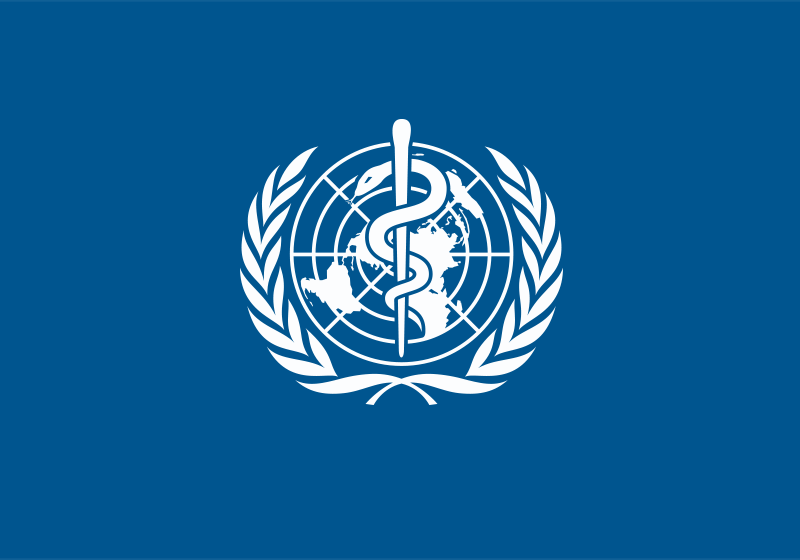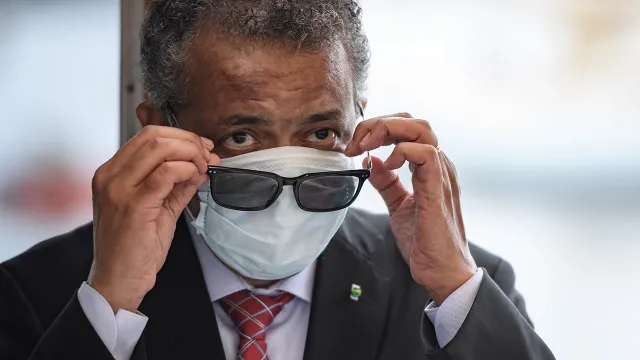
Introduction to the WHO
The World Health Organization (WHO) is a specialized agency of the United Nations (UN), tasked with coordinating international efforts to improve global health. Established in 1948, the WHO role in global health has played a critical role in shaping policies and responding to public health emergencies. As the leading health authority worldwide, the WHO works to ensure that all people attain the highest possible level of health.
The WHO’s functions include disease prevention, health promotion, and developing medical guidelines to improve healthcare worldwide. It provides countries with expert advice on managing health systems, responding to epidemics, and implementing preventive healthcare strategies. By working with governments, non-governmental organizations (NGOs), and the private sector, the WHO role in global health fosters international cooperation to address pressing health concerns effectively.
The WHO also plays a significant role in conducting research and gathering health data to identify emerging threats. The organization’s commitment to transparency ensures that accurate, evidence-based information is available to policymakers, health professionals, and the general public. Through its coordinated efforts, the WHO continues to make significant strides in improving public health globally.
| Key Aspect | Description | Example |
|---|---|---|
| Full Name | World Health Organization | WHO is a UN agency |
| Role | Coordinates global health efforts | Disease prevention, health promotion |
| Establishment | Founded in 1948 | Responding to health challenges post-WWII |
| Health Guidelines | Develops medical policies | Vaccination campaigns |
| Partnerships | Works with governments & NGOs | International disease response |
| Research & Data | Conducts studies and collects data | Reports on emerging health threats |
Structure and Reach
The WHO operates through an extensive global network, with its headquarters in Geneva, Switzerland. Since its establishment, it has expanded significantly, establishing six regional offices that coordinate activities across different parts of the world. These regional offices allow the WHO to tailor its efforts to the unique health challenges of various regions, ensuring more effective interventions.
In addition to regional offices, the WHO boasts a presence in over 140 countries through country offices. These offices work directly with national governments to provide technical assistance, implement health programs, and strengthen local healthcare systems. The WHO also operates 200 research centers, which play a crucial role in scientific studies and the development of health innovations.
With a workforce of more than 7,000 professionals, the WHO role in global health leverages its expertise in epidemiology, medicine, public health, and policy-making to address health crises worldwide. This diverse and highly skilled workforce ensures that the organization remains at the forefront of tackling global health issues, from infectious disease outbreaks to chronic disease prevention.
| Key Aspect | Description | Example |
|---|---|---|
| Headquarters | Geneva, Switzerland | Central WHO office |
| Regional Offices | Six offices worldwide | Europe, Africa, Americas, etc. |
| Country Offices | Over 140 worldwide | WHO presence in local health systems |
| Research Centers | 200 facilities | Studies on disease prevention |
| Workforce | 7,000+ professionals | Experts in various health fields |
| Operational Reach | Global impact | Tailored health interventions |

Decision-Making and Funding
The World Health Assembly (WHA) serves as the WHO’s highest decision-making body. Comprising representatives from all 194 member states, the WHA meets annually to discuss health priorities, review policies, and set the organization’s agenda. This assembly ensures that global health decisions are made collaboratively, reflecting the needs and interests of diverse populations.
Funding for the WHO comes from multiple sources, ensuring that it has the necessary resources to carry out its work effectively. Member states contribute assessed contributions, which are mandatory payments based on their economic strength. Additionally, the WHO receives voluntary contributions from governments, international organizations, private donors, and philanthropic entities such as the Bill & Melinda Gates Foundation.
Despite its substantial funding, the WHO role in global health faces challenges in securing financial stability. Many of its initiatives rely heavily on voluntary donations, which can fluctuate based on economic conditions and donor priorities. To address this, the WHO continues to explore innovative financing strategies, including partnerships with the private sector and multi-stakeholder coalitions.
| Key Aspect | Description | Example |
|---|---|---|
| Decision-Making | Led by World Health Assembly | Annual meetings of 194 members |
| Members | Countries contributing | Global representation |
| Funding Sources | Assessed & voluntary contributions | Member payments, donor funds |
| Financial Challenges | Reliance on voluntary funds | Economic dependency |
| Partnerships | Collaborates with donors & organizations | Gates Foundation contributions |
| Financial Strategies | Seeks sustainable funding | Multi-sector partnerships |
Historical Background and Purpose
The WHO was created in 1948, largely in response to the rising global health challenges following World War II. The war had led to widespread disease outbreaks, malnutrition, and poor healthcare infrastructure in many parts of the world. Recognizing the need for a coordinated global health authority, world leaders established the WHO with a mission to achieve the highest possible standard of health for all people.
The organization’s primary purpose is to prevent diseases, promote well-being, and ensure universal healthcare access. Over the decades, the WHO has played a key role in eliminating smallpox, reducing child mortality, and improving maternal health. It continues to focus on global health equity, ensuring that even the most vulnerable populations receive essential medical services.
| Key Aspect | Description | Example |
|---|---|---|
| Founding Year | Established in 1948 | Post-WWII health response |
| Initial Purpose | Address war-related health crises | Malnutrition, disease control |
| Health Equity | Ensuring access for all | Universal healthcare efforts |
| Disease Eradication | Leading eradication efforts | Smallpox elimination |
| Maternal & Child Health | Improving survival rates | Vaccination programs |
| Global Health Standards | Setting policies & guidelines | WHO regulations |

Major Health Initiatives
One of the WHO’s most impactful contributions has been in global disease control. The organization led the eradication of smallpox (1967-1980), a monumental achievement in global health history. Additionally, the WHO coordinates global efforts to combat AIDS, malaria, SARS, flu, and COVID-19.
In recent years, the WHO has ramped up initiatives to improve vaccine access, combat antimicrobial resistance, and support universal health coverage. These efforts are crucial in preventing disease outbreaks and strengthening health resilience worldwide.
| Key Aspect | Description | Example |
|---|---|---|
| Smallpox Eradication | Successfully eradicated | 1967-1980 campaign |
| Disease Control | Combatting global epidemics | AIDS, malaria, COVID-19 |
| Vaccination Campaigns | Expanding immunization | Polio, HPV programs |
| Health Resilience | Strengthening health systems | Pandemic preparedness |
| Antimicrobial Resistance | Addressing drug-resistant infections | AMR guidelines |
| Universal Health Coverage | Ensuring healthcare for all | Health policy support |
Expanding Focus on Health Risks
Since 1988, the WHO has broadened its focus beyond infectious diseases to include non-communicable health risks such as obesity, smoking, and alcohol consumption. These risk factors contribute significantly to chronic diseases like heart disease, diabetes, and cancer, prompting the WHO to develop international guidelines and public health campaigns aimed at reducing their prevalence.
Role in Healthcare Systems
The World Health Organization (WHO) plays a crucial role in supporting healthcare systems across the globe. Rather than directly implementing medical services, it provides expertise, guidance, and resources to help countries strengthen their healthcare infrastructure. This includes offering technical assistance, policy recommendations, and training programs to ensure that nations can independently sustain high-quality healthcare. By working with governments, the WHO helps create effective national health policies, ensuring better medical accessibility for all.
One of the most significant contributions of the WHO role in global health is its role in vaccination campaigns. The organization coordinates with national health ministries to promote immunization programs against deadly diseases such as measles, polio, tuberculosis, and influenza. It provides funding, logistics, and technical expertise to ensure the smooth execution of mass vaccination drives. WHO-supported campaigns have led to significant declines in preventable diseases, with polio eradication efforts being one of its greatest successes.
Additionally, the WHO serves as a global consultant on healthcare policies. It collects data, researches emerging health threats, and advises governments on best practices for improving public health. By collaborating with medical institutions, non-governmental organizations, and policymakers, the WHO ensures that nations have evidence-based guidelines to follow. Its influence extends to shaping laws regarding disease prevention, nutrition, and maternal care, ultimately leading to improved healthcare outcomes worldwide.
WHO’s Role in Healthcare Systems
| Aspect | Description | Impact |
|---|---|---|
| Strengthening Infrastructure | Provides expertise and resources to enhance national healthcare systems | Improves access to healthcare services |
| Policy Consultation | Advises governments on public health strategies | Helps in forming effective healthcare policies |
| Vaccination Campaigns | Supports immunization efforts worldwide | Reduces preventable diseases significantly |
| Medical Training Programs | Provides education and skill development for healthcare workers | Ensures skilled professionals in the field |
| Data Collection & Research | Conducts global studies on disease trends | Helps in early detection and prevention |
| Collaboration with Organizations | Works with NGOs, governments, and medical institutions | Ensures a united global health approach |
Emergency Response and Global Coordination
The WHO’s emergency response mechanism is one of its most vital functions, ensuring rapid intervention during global health crises. In 2015, the organization established the Global Health Emergency Workforce (GHEW) to improve its ability to respond to disease outbreaks, natural disasters, and humanitarian crises. This team consists of medical experts, epidemiologists, and logistical support personnel who can be deployed swiftly to affected regions. Their primary goal is to contain outbreaks before they escalate into pandemics, preventing widespread loss of life.
Global cooperation is at the heart of the WHO’s emergency response strategy. The organization works alongside governments, the United Nations (UN), international relief agencies, and scientific research institutions to coordinate disaster relief efforts. Whether addressing earthquake-related health crises, disease outbreaks, or medical shortages in war zones, WHO-led collaborations ensure that aid reaches those in need efficiently. Their role in managing Ebola, Zika virus, and COVID-19 outbreaks highlights their ability to mobilize global resources for urgent healthcare needs.
Another essential function of the WHO is the creation of early warning systems. By maintaining a global disease surveillance network, the WHO helps detect potential health threats before they spread uncontrollably. This system tracks infectious disease patterns, reports abnormal cases to authorities, and triggers immediate containment measures. Such proactive strategies allow health agencies to prepare vaccines, allocate resources, and implement travel restrictions when needed. Through this approach, WHO role in global health plays an indispensable role in safeguarding global health security.
WHO’s Emergency Response & Coordination
| Aspect | Description | Impact |
|---|---|---|
| Global Health Emergency Workforce | Deploys rapid-response teams to crisis zones | Prevents outbreaks from escalating |
| Disease Outbreak Management | Coordinates with nations to contain infectious diseases | Reduces the risk of pandemics |
| Disaster Relief Support | Provides medical aid after natural disasters | Ensures healthcare access for affected populations |
| International Collaboration | Works with UN, NGOs, and governments for relief efforts | Strengthens global health security |
| Early Warning Systems | Tracks disease outbreaks and alerts governments | Helps in early response and containment |
| Vaccine & Treatment Distribution | Ensures access to vaccines and medicines during crises | Protects vulnerable populations |
You Might Also Like
- What Is BRICS and How Could It Challenge the US Dollar?
- What is NATO? NATO Founding Principles Global Expansion
- What is the UN Pact for the Future? Power Vetoes Global Impact
- Role of WTO in Global Trade and Development
Trump’s Criticism of WHO: Why He Wanted to Leave
Donald Trump became increasingly frustrated with the World Health Organization (WHO) during the COVID-19 pandemic, blaming the organization for its delayed response and lack of transparency, particularly regarding its relationship with China. He accused the WHO of being too lenient and failing to act swiftly enough, which, in his view, contributed to the global spread of the virus.
In 2020, this dissatisfaction led to Trump’s decision to withdraw the United States from the WHO, arguing that the organization was ineffective and mismanaged. His administration claimed the WHO was not fulfilling its role in ensuring global health security, and he redirected U.S. funds to other health initiatives. This move sparked debate about the WHO’s global influence and its ability to handle international health crises.



